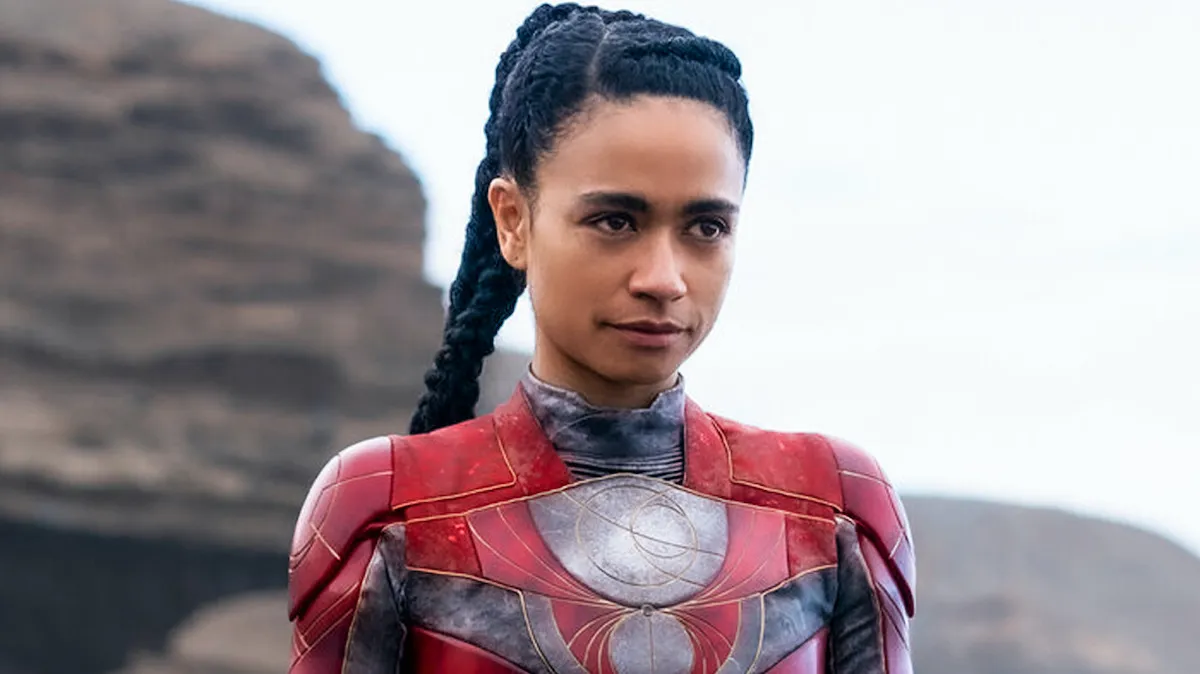Amidst all the major announcements and jaw-dropping cosplays at San Diego Comic-Con 2022, there were also a ton of interesting conversations about filmmaking. One panel, “Disability Representation On and Off Screen,” featured Lauren Ridloff (AKA Makkari from Marvel’s Eternals) talking about what it means to work as a Deaf actor in an industry that doesn’t always get disability accommodations or representation right. Also on the panel were Jillian Mercado (The L Word: Generation Q), Josh Feldman (This Close), Greg Machlin (writer and producer, The Canadians), and Aoife Baker (costume designer, The Canadians).
Here’s what they had to say!
Accessibility Behind the Scenes
One topic that came up again and again during the panel was how filmmakers can make sure their projects are accessible to actors with disabilities. The panelists stressed that accessibility isn’t something that can be tacked on just before the cameras start rolling. It has to be considered from the very beginning. Baker pointed out that disability accommodations often come down to the line producer of a production, since that’s the person who decides how allocate the budget. Accessibility—or a lack of it—always comes down to the decisions people make throughout the production process. It’s never a random act of God.
When disabled actors and crew members aren’t involved in those decisions beforehand, they often find themselves taking on unpaid disability consultant labor on top of all their other job duties. Multiple panelists talked about not wanting to be seen as difficult or bothersome when asking for accommodations, since gaining a reputation as a difficult actor could have a negative affect on their careers. (It’s worth noting that all the panelists who mentioned being afraid to advocate for themselves were disabled women of color. It’s telling that you seldom hear about able-bodied white guys being afraid to ask for things on set that would make their lives easier.)
Ridloff, in particular, talked about how tricky it can be to get accommodations for intersectional identities. She told an amazing story about how, when filming Eternals, she was assigned a stylist, and it took them a whopping six hours to do her hair. Ridloff later found out, though, that fellow Black actor Brian Tyree Henry, who played Phastos, asked for his own stylist to be flown in. Once Ridloff realized she could request someone who specialized in Black hair, she made the ask and her time in the chair dropped to 25 minutes. That’s a difference of five and a half hours! While no one wants to feel like they’re biting the hand that feeds them, Ridloff said, it’s also okay to ask for what you need.
Ridloff and the other panelists also talked about how powerful it is for a production to have multiple disabled people involved. It can be isolating to be the only disabled person on a production, but it’s empowering when disabled cast and crew can bounce ideas off each other and get validation for accommodation requests that they might feel hesitant about.
Luckily, there are disabled crew members who can advocate for actors behind the scenes, and make sure that accommodations are factored in from the very start. Feldman said that as a disabled producer, he can help shape things in the writers’ room so that disabled actors don’t have to perform consultant labor or risk being branded as difficult.
Disability Representation Onscreen
Involving disabled people in decisions doesn’t just make life easier for the actors. It also helps a production get disability representation right onscreen.
When talking about her work in The L Word, Mercado said that if the series gets any aspect of disability wrong, she gets blamed for it because she’s the one on camera. That situation leads to a dilemma for her: does she take on the burden of being an ad hoc consultant behind the scenes, or does she let herself feel like she’s failed her community by not speaking up?
Good representation can have profound effects on people’s lives. Baker pointed out that if a production accurately portrays the symptoms of a disability, then audience members with those same symptoms might recognize themselves onscreen and seek out a diagnosis.
Plus, as Ridloff pointed out, representation helps normalize disability. When disabled people are only depicted occasionally in film and TV, then the audience tends to see them as teachable moments. When a film or series has as many disabled characters are there are in real life, though, then able-bodied people come to—correctly!—see disabled folks as normal.
(image: Marvel Studios)










Published: Jul 22, 2022 11:22 pm